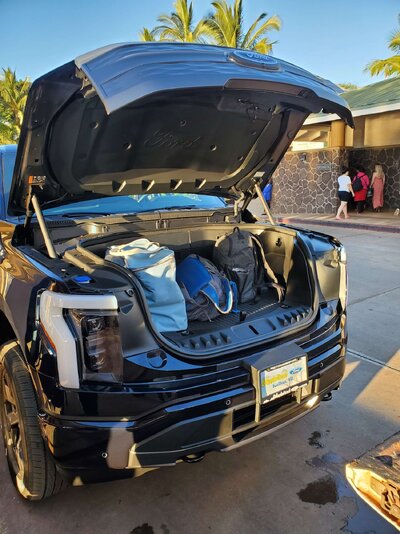- Thread starter
- #21
For us, it's more about having the ability when the grid goes down.
I just watched an interesting YouTube video on some guy who was proposing a "down grid" backup system as opposed to a total "off grid" solar setup. He had already purchased a massive total house solar off grid system that cost him over $90,000.00. But he was now advising people to consider "down grid" solutions as more cost effective.
For example, he stated you could buy battery backup systems, charged by the grid, that would allow you to run your house for a day or more if the grid power went out. After that initial day or two, then he suggested you run a diesel/gas generator to recharge the backup batteries if you still did not have grid power. He stated that it would cost about $15.00 per week to keep the battery banks charged to run the house essentials. The battery banks plus the generator were less than $5,000.00. He had come to the conclusion that for most people, "down grid" backup power made more sense than buying into a total "off grid" expensive solution.
He stated that he had an 80 year old neighbor that requested a quote for a total off grid solar system that came in at about $60,000.00 with a 25 year break even point. Neighbor took his recommendation and went with a battery backup solution with generator instead. Payback, a couple of years....
Where I live, I have normal grid power at about 12 cents per kWh, and our Off-Peak rate which you use for heating the house, the hot water heater, the dryer, and slab heat costs us 6.7 cents per kWh. It's cheaper for me to heat the house with Off-Peak electricity than burning propane. Almost half the cost some years.
Also, we have never had power out longer than a few hours in the 30 years I have lived here. So, I have never really considered any off grid setups. But I do think it would be nice to have a battery backup solution, kept charged by Off-Peak power, ready to turn on in case of an emergency. I think that might be a solution for many people living in those hurricane zones.


 When I was growing up, we had a lake cabin that had no electricity. We used kerosene lamps and our refrigerator ran on propane. We had a small propane stove, but mainly grandma cooked on a wood burning stove in the main room. The wood burning stove provided us with hot water, heat for the cabin, and also cooked our food.
When I was growing up, we had a lake cabin that had no electricity. We used kerosene lamps and our refrigerator ran on propane. We had a small propane stove, but mainly grandma cooked on a wood burning stove in the main room. The wood burning stove provided us with hot water, heat for the cabin, and also cooked our food.


